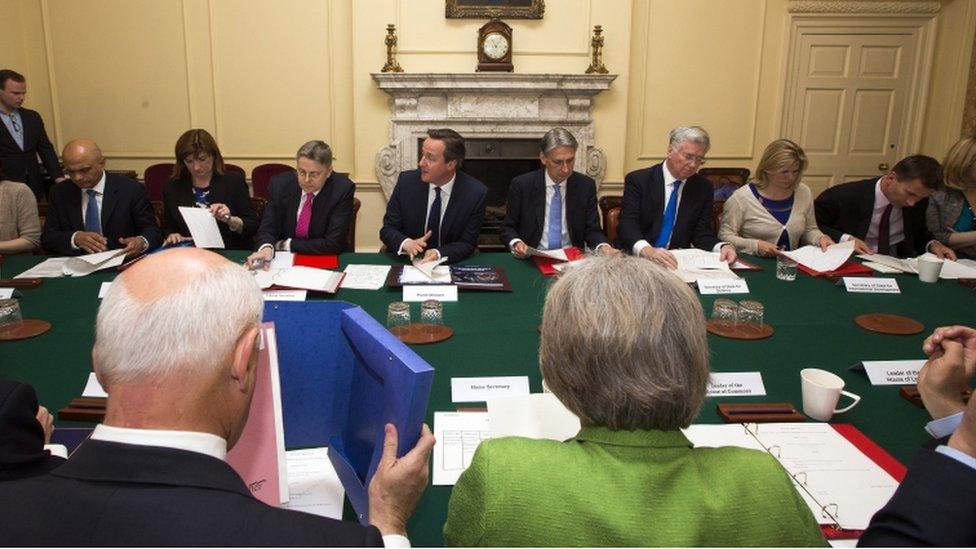Cameron's EU renegotiation deal is still to be done
- Published
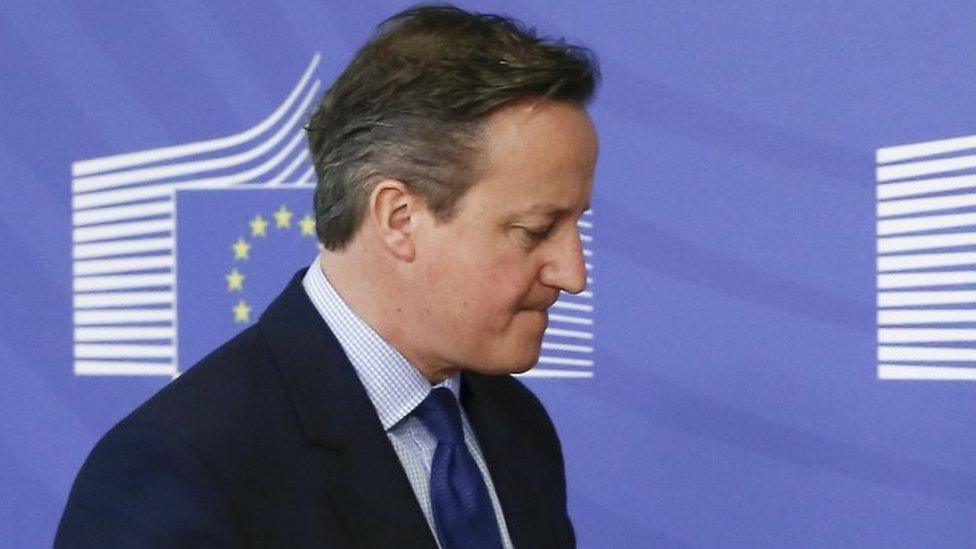
David Cameron has - to put it mildly - never been a big fan of Brussels.
But his whirlwind trip to Belgium was born of necessity. He needs cooperation and support from the European institutions if his renegotiation is to succeed.
European Parliament President Martin Schulz promised a constructive approach if Britain were to vote to remain in the EU. But parts of the proposed UK deal need changes to be made to EU legislation - including regulations on welfare payments and social security.
Downing Street said senior lawmakers promised to act as swiftly as possible. But Mr Schulz said no parliament could guarantee in advance what the outcome would be.
"This is not possible in a democracy," he said.
Fair enough, but that will allow David Cameron's opponents to chip away at the idea that this proposed deal is set in stone. It is an argument that will recur throughout the referendum campaign.
And it is by no means the only potential obstacle that has been highlighted over the past couple of days. The deal itself is still to be done.
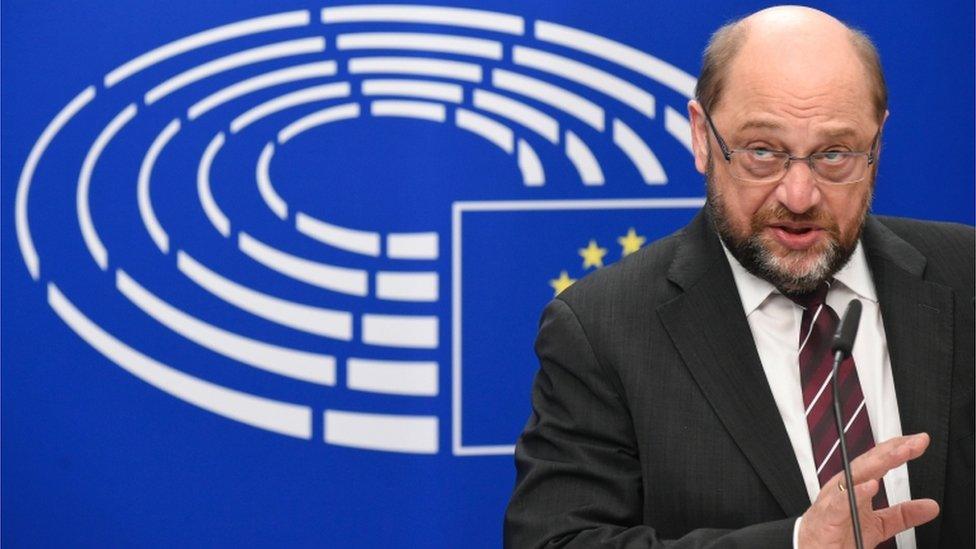
Martin Schulz said he could not guarantee what the parliament would decide
Four eastern European countries - Poland, Hungary, Slovakia and the Czech Republic (known as the V4) - are demanding that reductions in child benefit payments only apply to new applicants, not to their citizens who are already in the UK.
Prime Minister Cameron has already had to back away from what he has called for in the past - an outright abolition of all child benefit for foreign nationals with children living abroad. Now he is being asked to give even more.
On a visit to the Czech Republic, the European Council President Donald Tusk, said there was still a lot of talking to do.
"The position of the V4 is very clear," he said. "In view of that I have no doubts: There is an extra mile we will have to walk to reach an agreement."
Then of course there are still unresolved issues with France and others over language in the proposed deal that sets out the relationship between countries that use the euro and those that don't.
Much of it involves quite technical but extremely important financial detail.
One clear positive for David Cameron is that no-one wants these negotiations to drag on, and a deal still seems the most likely outcome of this week's EU summit.
But the prime minister is already under attack from critics who say he hasn't achieved enough. So any sense that his proposed deal could be watered down still further could be difficult for him to accept.

Further reading on the UK's EU referendum
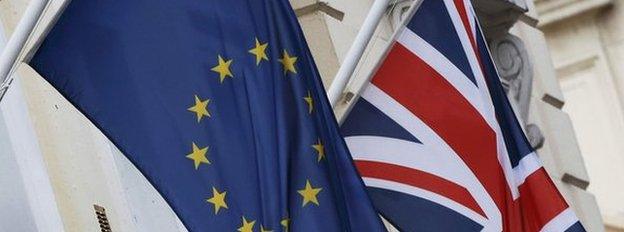
'Audacious demand': UK's wish list seriously taken by EU leaders
Guide: All you need to know about the referendum
Referendum timeline: What will happen when?

- Published16 February 2016
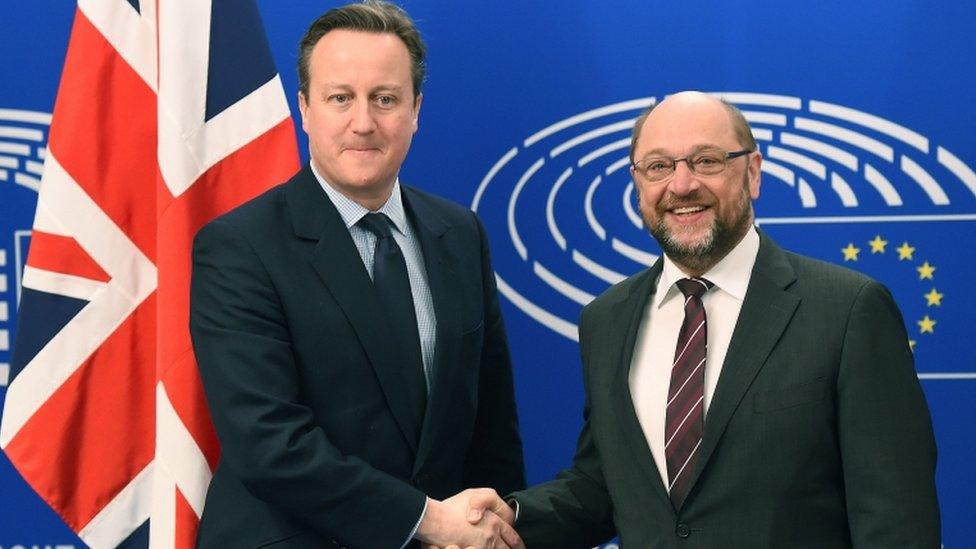
- Published15 February 2016
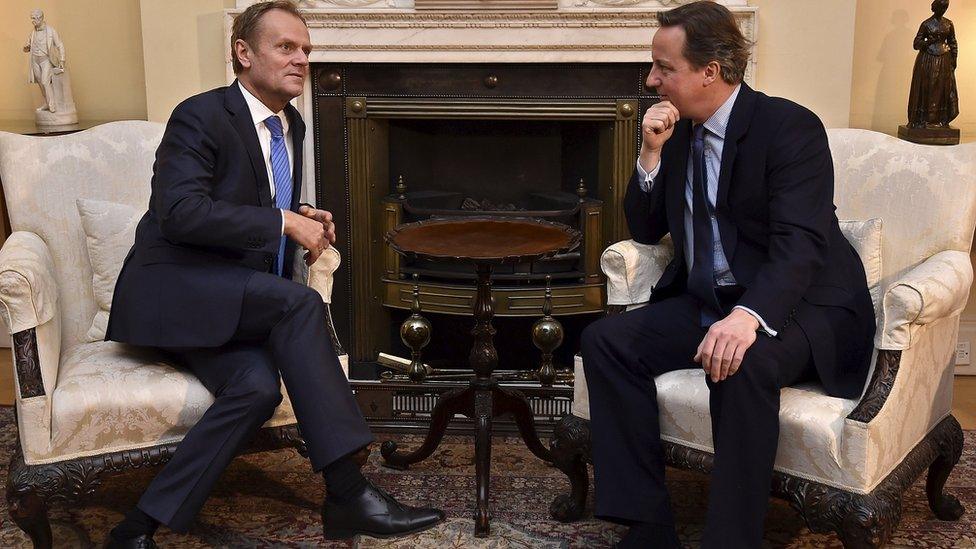
- Published15 February 2016
